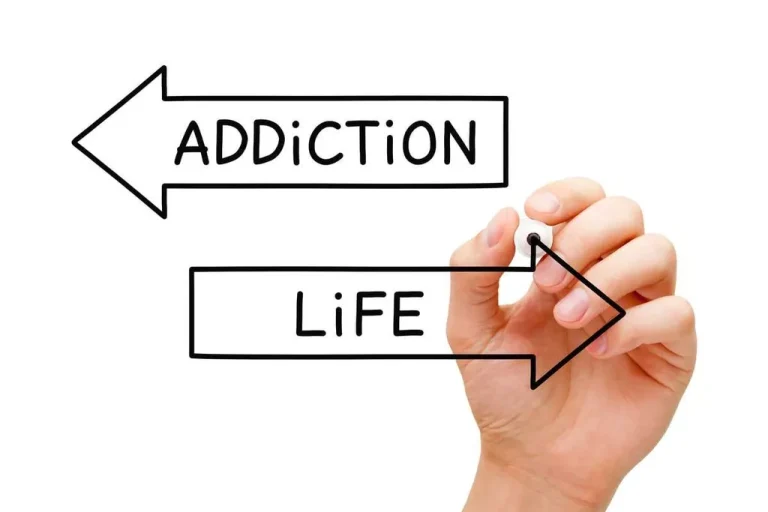Alcoholism Definition, Causes, & Associated Diseases

If alcohol is interfering with your health or your personal, financial, or professional life, consider quitting. When someone drinks alcohol for a prolonged period of time and then stops, the body reacts to its absence. This is alcohol withdrawal, and it causes uncomfortable physical and emotional symptoms.

Tips to Prevent Anxiety
Alcohol misuse refers to single episodes during which you might drink excessively. When this occurs repeatedly over time, and when it begins to impact your health and your life, alcohol misuse can become AUD. The disorder can also be broken down further into mild, moderate, and severe subtypes.
Alcohol-induced mental health conditions
That’s because alcohol can weaken your immune system, slow healing and make your body more susceptible to infection. Having a glass of wine with dinner or a beer at a party here and there isn’t going to destroy your gut. But even low amounts of daily drinking and prolonged and heavy use of alcohol can lead to significant problems for your digestive system.
Causes of Addiction
- Alcohol can cause both short-term effects, such as lowered inhibitions, and long-term effects, including a weakened immune system.
- The condition is likely the result of a combination of genetic, social, psychological, and environmental factors.
- Ulcers can cause dangerous internal bleeding, which can sometimes be fatal without prompt diagnosis and treatment.
- If AUD is not treated, it can increase your risk for serious health problems.
Alcohol use can exacerbate mental health conditions, like anxiety and depression, or lead to their onset. Because alcohol is a depressant, it can also contribute to mental health conditions, like anxiety and depression. Research indicates that heavy alcohol use can also increase the risk of suicide. People with severe or moderate alcohol use disorder who suddenly stop drinking could develop delirium tremens (DT). It can be life-threatening, causing serious medical issues like seizures and hallucinations that require immediate medical care.
Alcohol withdrawal
Can of Red Bull contains 80 mg of caffeine, and a concentrated, 2-oz. Energy shot can contain a staggering 215 mg, according to the Mayo Clinic. Just how any one person will react to these caffeine dosings can be hard to predict, and the 400-mg limit is just a general benchmark. People with fetal alcohol syndrome face lifelong challenges, including problems with hand-eye coordination and difficulties with memory and attention. There’s no need to swear off alcohol entirely, but timing your drinks can be the difference between sleeping through the night and tossing and turning.
Duration of Alcohol Use Disorder
- Finally, epidemiologists need a definition of alcoholism that enables them to identify alcoholics within a population that may not be available for individual examination.
- The oldest living person in the world is now 116-year-old Tomiko Itooka of Japan, who was born in 1908, GRG said.
- The Roman philosopher Seneca classified it as a form of insanity.
- Scientists once believed that the experience of pleasure alone was enough to prompt people to continue seeking an addictive substance or activity.
- Millions of readers rely on HelpGuide.org for free, evidence-based resources to understand and navigate mental health challenges.
- These first few weeks are critical because they are when the risk of relapse is highest.
You can log it in a journal or just check in with yourself in the morning. If you’re making an effort to pay attention to how it affects you, you can set limitations for your body and needs. You should be aware of how alcohol affects you and your sleep schedule.

If you work an irregular or overnight shift, similarly stop drinking caffeine 10 or 11 hours before you go to bed. The Sleep Foundation gives you a little more wiggle room, suggesting stopping caffeine at least eight hours before bed. In the brain, caffeine blocks or impedes the effect of adenosine, a building block of nucleic acid found in all of the cells in the body.

Importantly, we found that when both parents drank, the effects on their offspring were worse than when only one parent consumed alcohol. For example, we observed a threefold increase in age-related liver scarring when both parents consumed alcohol. My lab’s recently published research shows that chronic alcohol use from both parents has an enduring effect on the next generation by causing their offspring to age faster and become more susceptible to disease.
- If you work an irregular or overnight shift, similarly stop drinking caffeine 10 or 11 hours before you go to bed.
- People who are daily or heavy drinkers may need medical support to quit.
- “Excessive alcohol consumption can cause nerve damage and irreversible forms of dementia,” Dr. Sengupta warns.
- When this occurs repeatedly over time, and when it begins to impact your health and your life, alcohol misuse can become AUD.
- According to the Institute of Medicine guidelines, adult males should aim to drink 13 cups daily, and adult females should drink 9 cups daily.
- We go to happy hour after work, we give toasts at weddings, and we drink to celebrate and mark occasions.
Doctors advise not drinking again within 48 hours of a heavy drinking session, to allow the body to recover. They may have an intolerance, insensitivity, or allergy to alcohol or another ingredient in a drink. According to the National Survey on Drug Use and Health (NSDUH), 15.1 million people aged 18 years and over in the U.S. had alcohol use disorder (AUD), or 6.2 percent of this age group. It is commonly misused among individuals of all ages, resulting in significant health, legal, and socio-economic damage.
This characteristic is inconsistent with the medical model, which implies that alcoholism is either present or absent—as is the case, for example, with pregnancy or a brain tumour. For such reasons, the sociological definition regards alcoholism as merely one symptom of social deviance and believes its diagnosis often lies in the eyes and value system of the beholder. why do people become alcoholics For example, periodic intoxication can cause sickness necessitating days of absence from work. In a modern industrial community, this makes alcoholism similar to a disease. In a rural Andean society, however, the periodic drunkenness that occurs at appointed communal fiestas and results in sickness and suspension of work for several days is normal behaviour.
